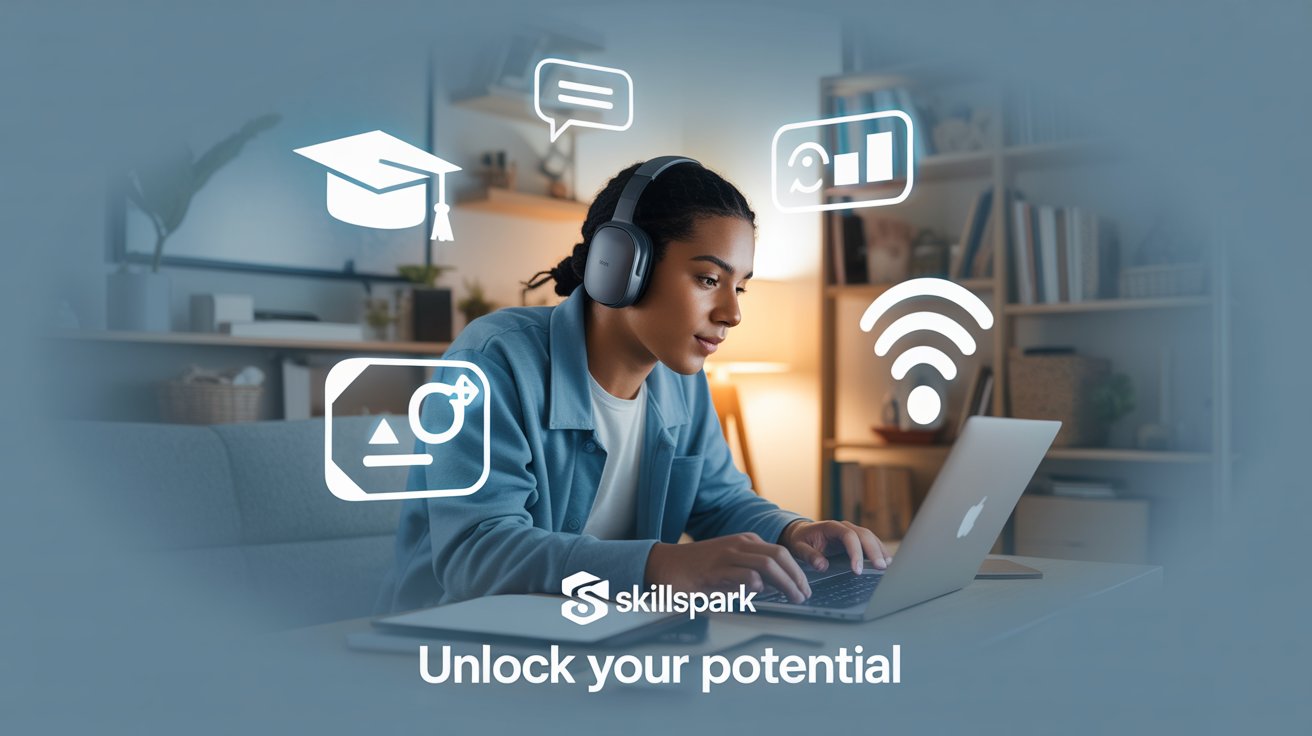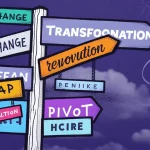Let me be honest with you – my first attempt at achieving online learning success was a complete disaster. I signed up for three courses, convinced I’d breeze through them like I did in college. Two weeks later, I’d watched maybe four videos total and had already fallen behind on assignments. Sound familiar?
After struggling through multiple online courses over the past few years, I’ve learned some hard lessons about what actually drives online learning success and what doesn’t. Here’s what I wish someone had told me before I started.
Table of Contents
The Distraction Battle is Real (And I Almost Lost)

Here’s something nobody warns you about: your home isn’t designed for learning. I used to sit on my couch with my laptop, thinking I was being efficient. Wrong move. Netflix was literally one tab away, my phone kept buzzing, and somehow I’d end up deep in a YouTube rabbit hole about conspiracy theories.
The turning point came when I finally admitted I needed to treat this seriously. I cleared out a corner of my bedroom – nothing fancy, just a small desk facing the wall. No decorations, no personal items that might distract me. It felt almost too simple to work, but it did.
What actually worked for me:
- I downloaded an app called Cold Turkey that blocks everything except what I need for studying.
- Phone goes in a drawer in another room. If it’s within arm’s reach, I’ll check it. That’s just how my brain works.
- I told my roommate when I’d be studying so they wouldn’t interrupt. This felt awkward at first but made a huge difference.
The weird thing is, after about two weeks, my brain started associating that corner with “work mode.” This single change became the foundation of my online learning success story. Now I can actually focus there without fighting myself constantly.
Structure Saved My Grades (Eventually)
This one’s embarrassing to admit, but I used to treat online courses like Netflix shows – something to binge when I felt like it. Spoiler alert: I never felt like it.

My wake-up call came during a particularly brutal week when three assignments were due simultaneously. I’d been “planning” to catch up for weeks, but planning without a real schedule is just wishful thinking.
I started small. Instead of creating some elaborate system I’d abandon after a week, I picked three fixed times: Tuesday evenings, Thursday mornings, and Sunday afternoons. That’s it. No complicated color-coded calendar, no productivity apps with seventeen different features.
My simple routine that actually stuck:
- I treat these times like doctor’s appointments – non-negotiable unless there’s a genuine emergency
- Before each session, I write down exactly what I want to accomplish. Not vague goals like “study chapter 3” but specific tasks like “complete quiz 2 and take notes on the first 20 minutes of lecture 5”
- I use a basic timer for the Pomodoro Technique. Twenty-five minutes of focused work, then a five-minute break. After four cycles, I take a longer break
The routine felt restrictive at first, but now it’s liberating. I don’t waste mental energy deciding when to study – it’s already decided. This structure became a cornerstone of my online learning success.
Active Learning Changed Everything (But Took Time to Figure Out)
I spent months treating online courses like documentaries – sitting back and absorbing information. My retention was terrible, and I’d forget most of what I’d learned within days.
The shift happened when I started getting frustrated with my poor quiz scores despite watching all the videos. I realized I was being completely passive. Watching a lecture isn’t the same as learning from it.
Now I approach every piece of content like I’ll need to explain it to someone else tomorrow. Sometimes I literally do – I’ve become that person who explains random course concepts to my friends over coffee.
My active learning toolkit:
- I pause videos frequently to write quick summaries in my own words. If I can’t explain it simply, I don’t understand it well enough
- Discussion forums became my best friend. I started answering other people’s questions, which forced me to think more deeply about the material
- I create simple practice problems for myself, especially for technical subjects. There are only so many ways you can be tested on something – I try to anticipate them
- I keep a “confusion log” – anytime something doesn’t make sense, I write it down and research it later
The most surprising change was starting to enjoy the courses more. When you’re actively wrestling with ideas instead of passively consuming them, the material becomes more interesting. This engagement was crucial to my overall online learning success.
The Unexpected Challenges Nobody Talks About
Isolation hits harder than expected. In traditional classes, you naturally interact with other students. Online, you have to work to create those connections. I joined study groups and started reaching out to classmates for virtual coffee chats. It made a bigger difference than I anticipated.
Technical problems are motivation killers. I learned this the hard way when my internet crashed during a live session I’d been looking forward to for weeks. Now I have backup plans: mobile hotspot, library locations with good wifi, and I always test my tech setup before important sessions.
Imposter syndrome is amplified online. When you’re struggling alone at home, it’s easy to assume everyone else has it figured out. They don’t. I started being more open in course forums about what I was finding difficult, and discovered that most people were facing similar challenges.
What My Experience Taught Me
| Challenge | My Old Approach | What Actually Works | Why It Matters |
|---|---|---|---|
| Staying Motivated | Relied on initial enthusiasm | Created small, consistent wins | Motivation fades, but systems persist |
| Managing Time | Planned to “find time later” | Scheduled specific blocks | Time doesn’t appear – you have to claim it |
| Retaining Information | Highlighted and re-read | Actively tested myself | Recognition isn’t the same as recall |
| Getting Help | Struggled alone | Engaged with community | Learning is social, even online |
The Bottom Line
Online learning isn’t just traditional education moved to a screen – it requires different skills and approaches. I had to unlearn some habits from my college days and develop new ones.
The good news? Once you figure out what works for your learning style and life situation, online courses can be incredibly rewarding. I’ve completed more professional development in the past year through online courses than I did in the previous five years combined.
My biggest piece of advice? Don’t try to implement everything at once. Pick one area that’s causing you the most trouble and focus on that first. For me, it was distractions. For you, it might be time management or active engagement. Start there and build gradually.
Also, cut yourself some slack. If you’re struggling with online learning, you’re not alone and you’re not broken. It’s a different skill set, and like any skill, it takes time to develop. The fact that you’re reading this means you’re already on the right track.
A final thought: The habits I developed for online learning have improved other areas of my life too. I’m better at managing distractions, more disciplined about following through on commitments, and more proactive about seeking help when I need it. These courses taught me more than just their subject matter – they taught me how to learn effectively in the digital age.
That’s a skill that’s only going to become more valuable as time goes on.








